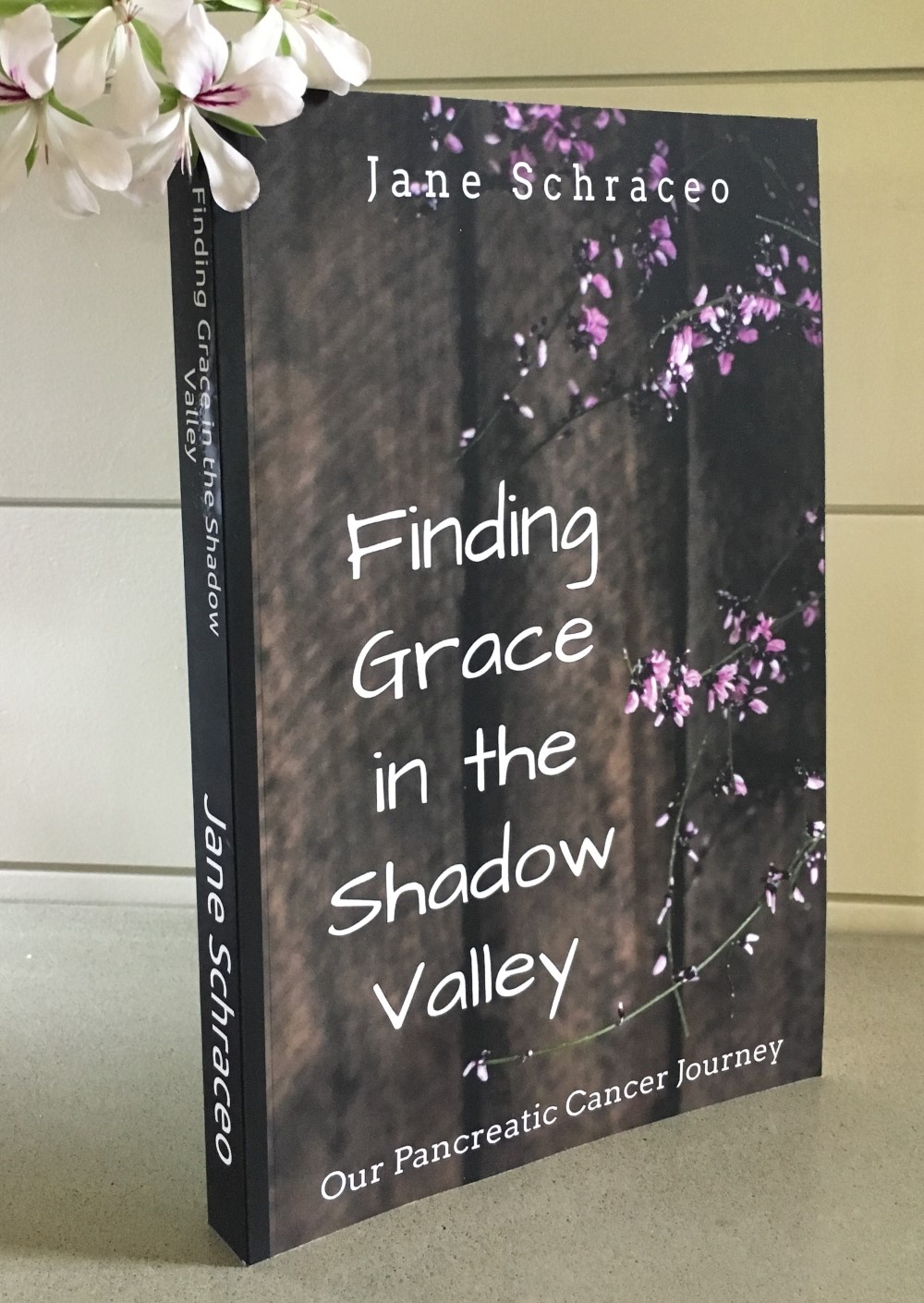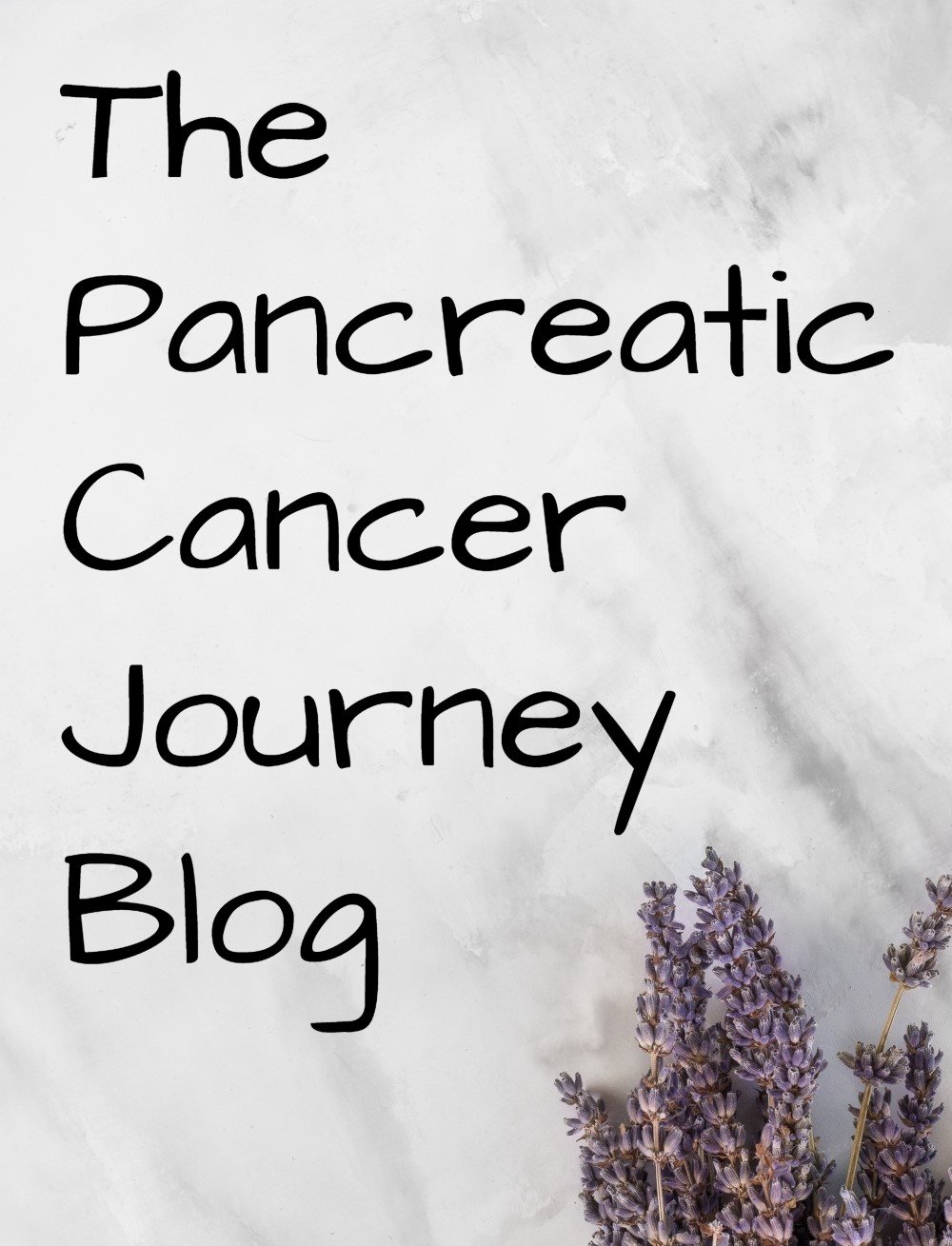What to Say
When a Terminal Diagnosis
Hits Home
When mom's pancreatic cancer diagnosis hit us, we were all shell-shocked.
Speechless.
What to say?
We could hardly breath.
The finality of a terminal diagnosis leaves even the most well-intentioned of friends and families at a loss for words. So how do we find words when there are none? What do we say when we can't think of one positive thing?
Somewhere I once heard a quote about just being there, goes something like,
"If you see someone crying, don't just do something...stand there."
Those first few days after mom's diagnosis, that is what we remember the most. Those strong and courageous friends and family who circled around us, without saying much of anything, and cried with us, prayed with us and listened to us. So, if you are needing the push to be there for your loved one, this is it. Just do it. Words are almost unnecessary in the beginning.
However, mom got plenty of unexpected words right from the start. Many were right on target, uplifting and filled with love. A few were unfortunately way off base, causing more grief than hope.
So, if you're stuck for what to say and/or do, here's a sampling of things that we experienced. May they offer a path for you to show how much you care.
WHAT TO SAY AND DO
Be there. Just for a minute or two. Drop in at the hospital or at the house. It helped having visitors. Try and call first to make sure they are up to company.
Bring a little something if you need an excuse to stop in. Maybe coffee from Starbucks, or a fuzzy blanket and slippers.
Follow the patients lead on what to say. Ask specific questions, for example, how is the latest treatment going, not how are you feeling. And be prepared for a lengthy discussion or a single syllable answer. Go with it. Listen if they want to talk, don't offer cancer advice unless you've actually gone through whatever treatment/complication is being discussed. Or move on to other topics if they don't wish to discuss their day. If you are co-workers, tell them about the latest office gossip. If you are family, talk about the adorable antics of your 2-year old.
If you can think of a specific thing to offer as a help, then do so. Such as, Can I water your plants for you while you're in the hospital? Or perhaps, I made a batch of lasagna and will bring some by later. This is easier for the patient than a generic "What can I do to help?". Most patients won't be able to think of a thing, unless you can cure them of the cancer. That would be a Big Help!
Then leave. A quick hug, or touch of the hands, and out the door you go.DO NOT overstay your visit. You will tire the patient out when their strength needs to be focused on fighting the cancer.
Here are some specific things that helped:
Early on, some of mom's close neighbors and friends figured out with a deep intuition what mom needed most. They planned their weekly card parties, movie afternoons and bunco games around her doctor/treatment schedule and then they kept the conversation light and normal, sharing neighborhood news and gossip. The normalcy was a life-saver for mom's emotional state.
One neighbor, thoughtfully came in every Monday and changed mom and dad's king-sized bedsheets. Then she took them home to wash and brought them back.
Another neighbor found out that mom could tolerate soup fairly well during chemo and she brought her a variety of home-made soups (potato and chicken noodle were favorites) in small, throw-away containers.
And a variety of family and friends took turns going with mom to doctor appointments, chemo and radiation. Dad could have taken mom to every appointment, but the company and conversation they offered was precious. It helped take the burden off of Dad and provided a good distraction from the medical drama being played out in her life.
Others started making extra plates of their evening meals and bringing them to mom. With the hit on her appetite, the varied menus really appealed to her and helped Dad so much (he's not exactly a whiz in the kitchen!)
She received several very sweet handwritten cards from people. One special note was from her nephew out on the east coast. In this day and age of emails and texts, a handwritten note carries a special significance on the senders part and mom cherished these. What to say in the notes? Simple words, such as, I've been thinking of you, or perhaps a reminder of what they mean to you. Try using a favorite quote or inspirational verse. It doesn't have to be a whole letter, just a line or two will do. In this regard, it truly is the thought that counts.
WHAT NOT TO SAY AND/OR DO
I think mom has been fairly fortunate in that most of her loved ones have been an encouragement rather than a strain, but right from the start, she had a few friends who just didn't get it or who unwittingly said things that made her feel so much worse.
For example, when most friends heard she had pancreatic cancer the first thing out of their mouth was "oh no, I'm so sorry." Several actually teared up and became very depressed. That in itself is no crime, but from mom's standpoint, every "so sorry" she heard just reinforced how bad this cancer was. One neighbor made the comment, "Oh no, isn't that the cancer that Patrick Swayze died of?" Yes, it is and thank you so very much for reminding me. Hello?!
Other friends just seemed to disappear off the map. No calls, no visits, no acknowledgement of our huge crisis. Even mired down in our grief, we noticed and felt wounded that they didn't seem to care. We know now that their absence was most likely because they cared too much, or were dealing with their own grief over the possibility of losing mom, or simply just didn't know what to say. At the time though, we just felt their absence keenly. Even a brief call or card would have been better than nothing at all.
It is important to acknowledge the severity of the diagnosis, but it can be handled better as we found out. Mom had some friends who knew exactly what to say. One articulate friend that visited mom right after her diagnosis, said it best with only two words, "Oh, crap!" This succint statement brought the first laugh from mom in days.
Another friend went straight to the heart of the matter by including herself in the solution "Well, then what are we going to do about this?" And then this friend proceeded to listen as mom went over, at length, all the options the doctors had presented her.
Family members helped by debating the merits of each treatment plan with mom, always honoring her decision.
My brothers, both comedians in the family, used humor to get through the worst days. One laugh in particular has become a running joke in our family: My dad, at 76, loves my mom to pieces, but is, well, let's face it, he's a little self-absorbed. Sometimes he's stuck in the den for hours only surfacing for the meals that mom has prepared. The joke then being that if something should happen to mom, dad may not know it until his meals are late. I know, a little morbid, but gets a laugh out of mom and an eye roll from dad.
As you can see, there's nothing that beats just being there for the pancreatic cancer patient. Somedays are good, some are bad. Don't feel that you've got to stay long or talk much. If you still feel at a loss for what to say, just be there. For the long haul.
But be prepared. On the bad days, it's not pretty. Oprah has coined a phrase we like. The Ugly Cry. We did plenty of that. So if you can't handle the tears and anguish, maybe just call or send a card.
Many, many studies show that cancer patients who receive support from family and friends not only feel better, but may live longer. Consider it your gift to the pancreatic cancer patient in your life to be that support.
What to Say? When all else fails you, "I Love You and Care About You" works wonders!
Return to Words of Encouragement
Return to Home Page from What to Say
Copyright © PancreaticCancerJourney.com
Nothing on this website should be construed
to constitute medical advice.




